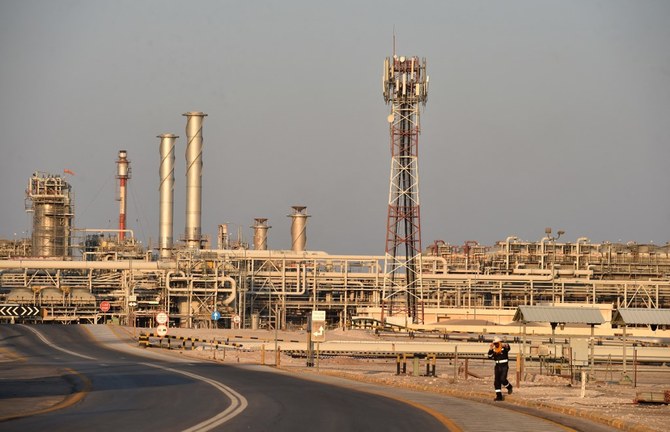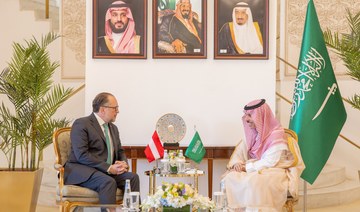RIYADH: Saudi Arabia could not ship more crude oil in the first half as it voluntarily restrained output under OPEC+ production-cut agreement; however, high oil prices this year helped the Kingdom to see stable income.
The Kingdom’s crude oil exports averaged 5.776 million barrels per day (bpd) in the first half of 2021, that is 19.8 percent less than 7.2 million bpd in the same period a year ago and 5.8 percent less than 6.129 million bpd in second half of 2020, according to JODI data.
Similarly, average daily crude output fell during the first six months of 2021 to 8.499 million bpd or 10.9 percent from 9.54 million bpd over the same period of 2020. The average daily rate of output also fell 4.5 percent from 8.895 million bpd in the second half of 2020.
This year, the economy has displayed stronger signs of recovery in line with global growth, leading to higher oil sales abroad and more non-oil activities at home.
Oil prices this year increased from $52 in January to $75 in July, along with steady ramping up of Saudi oil production under the OPEC+ deal. The result was an increase in oil revenues by 11 percent to SR249 billion in the first six months of the year, according to the ministry of finance data.
On the other hand, first half of 2021 saw a 17.9 percent year-on-year increase in average daily crude intake at domestic refineries, which grew to 2.356 million bpd from 1.999 million bpd in the first half of 2020 and edged up by 0.4 percent, compared to the second half of 2020.
The output at oil refineries averaged 2.423 million bpd during the first six months of 2021, which translates to an increase of 15.2 percent from the first six months of 2020 and 6.5 percent compared to the second half of 2020.

Average daily exports of oil products in the first half of this year also grew to 1.228 million bpd, up 28.5 percent and 14.3 percent from the first and second half of 2020, accordingly.
Despite the fall in crude oil exports and output this year, Saudi shipments started to see an uptick in June, and this will continue over the coming months as OPEC+ agreed to pump extra 400,000 bpd of crude into the market.
Saudi Arabia's crude oil exports rose for the second consecutive month in June, their highest level since January 2021, as more countries worldwide showed improvement in economic activities with vaccines roll out.
Crude exports went up by 5.6 percent from May to 5.965 million bpd, according to Saudi official data posted on Joint Organisations Data Initiative (JODI) website, while the Kingdom's output rose by 383,000 bpd to 8.927 million bpd in June from 8.544 million b/d in May.
The OPEC+ plan to increase output may not result in higher exports as planned with many economies are back to closing down over fears of COVID-19 variants.
Oil prices closed out their biggest week of losses in more than nine months with another down day on Friday, as investors sold futures in anticipation of weakened fuel demand worldwide due to a surge in COVID-19 cases.

The crude market has now posted seven consecutive days of losses. Numerous nations worldwide are responding to the rising infection rate due to the coronavirus Delta variant by adding travel restrictions to cut off the spread.
China has imposed stricter disinfection methods at ports, causing congestion, nations including Australia have ratcheted up travel restrictions, and global jet fuel demand is softening after improving for most of the summer.
Brent crude fell 8% on the week, settling down $1.27, or 1.9%, to $65.18 a barrel, its lowest since April and down about 8% for the week. U.S. West Texas Intermediate (WTI) crude for September settled down $1.37, or 2.2%, to $62.32 a barrel on Friday, to lose more than 9% for the week.
























